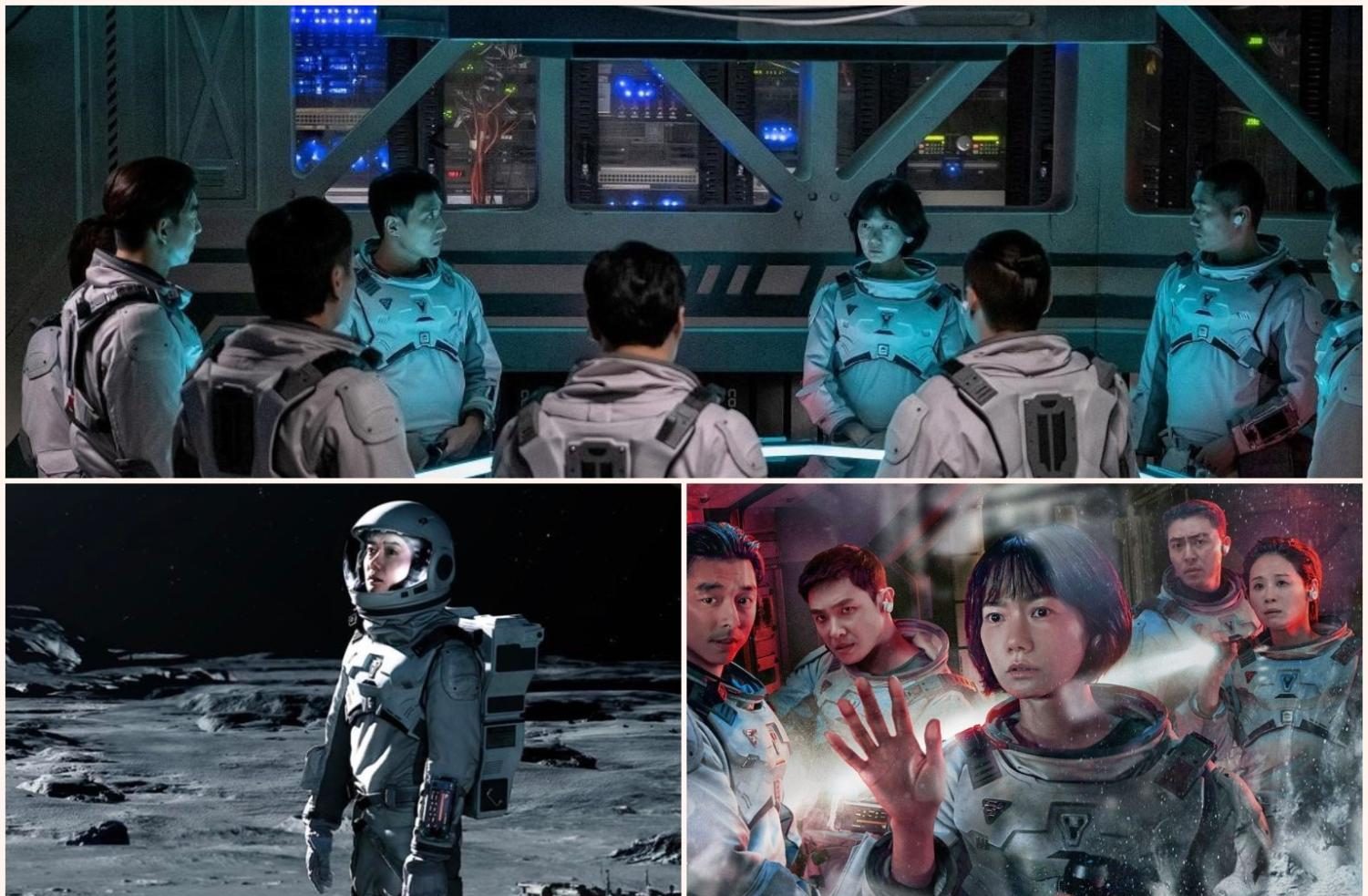Sick of the drama, but not of K-drama
March 7, 2022
Viewership of award shows like the Grammys and Oscars decreased, with the Oscars’ audience dropping around 56% in 2021: a new low for the ceremony.
It is believed that Hollywood’s growing habit of making these shows opportunities to discuss politics has been a major reason, with Hollywood typically expressing liberal views. However, some of today’s most popular K-dramas have an equally strong political stance. What these Korean dramas have in common in addition to their addictive quality and popularity is their unique ability to discuss political issues in a non-controversial way that relates to the whole world.
Within just twenty-eight days of its initial release, the popular K-drama Squid Game received an astonishing total of 1.65 billion hours on Netflix: the most any Netflix show has ever received within the same time frame. While the superficial aspects of the show like the green tracksuits and dalgona candy became ultra-popular, underneath lurks a strong stance regarding the complex political issue of capitalism and the growing wealth gap which not only prevalently exists in South Korea, but around the world.
The drama’s plot centers around an organization that invites those in debt to play a series of childhood-turned-deadly games for an extremely large cash prize. The mysterious, masked Game Maker and those who are known as the VIPs simply sit back and watch the players hurt each other as entertainment, while the VIPs bet on who might win. Despite the fatal danger these games impose upon its players, the obsessive desire to continue risking their lives just to win the monetary prize showcases not only the desperation of those who are struggling financially, but the power that the wealthy possess over the working class.
The show calls out South Korea’s high poverty rate of 17.4%, and an astonishing 43.8% for adults sixty-six or over. This is all despite the fact that South Korea is one of the most wealthy nations in the world. As a result, Squid Game’s influence inspired a massive union strike that took place in South Korea, as workers protested and fought for more job security and a higher minimum wage.
The futuristic, dystopian plot of The Silent Sea, another popular K-drama on Netflix, addresses a similar political issue, focusing more on the negative division that economic hierarchies inevitably cause within society. The show depicts a worldwide drought and a system of various statuses and classes in which the higher one’s status is in society, the more water one can receive. Strikes for more equality regarding water distribution not only emphasize how economic hierarchies pit people against each other, but it addresses the issue of those in the middle and working class not having the opportunity to even afford basic necessities as they struggle to earn enough money to live.
Professor and the Head of Theater and Performance Studies, who also researches East Asian Studies at the University of California, Los Angeles’ School of Theater, Film, and Television, Suk-Young Kim, said Squid Game’s worldwide popularity is largely due to its commentary on social class, describing it as “a story of people who are desperate financially and psychologically” and “something that we can all relate to, especially having gone through this extended period of pandemic.”
Jin-Wook Shin, a professor at Chung-Ang University in Seoul, believes that the issues Squid Game exposes are not unique to just Korea, for “the worldwide popularity of the Squid Game certainly suggests the opposite.”
It is arguable that these dramas resonate with audiences in America because they call out economic inequalities that are also present here. The United States has a 17.8% poverty rate, which is almost identical to that of South Korea’s. Also similar to South Korea, wealth inequality has been on the rise. A 2018 study done by the Organization of Economic Cooperation and Development found that the top 10% of society owns 79.5% of household net wealth while a mere 2.4% percent is owned by the bottom 60%.
These K-dramas’ calls for economic fairness and equality shine through without it feeling forced. They seamlessly fit in with the heart of the stories, which have drawn in millions of people from all over the world emotionally. Instead of attacking or calling out certain political figures, parties, or organizations, K-drama makes it about finding ways to showcase issues in a way that resonates with the audience and does not divide society or bring them down, but sparks change and inspires people to get involved the right way, with intentions of not division, but unity.

